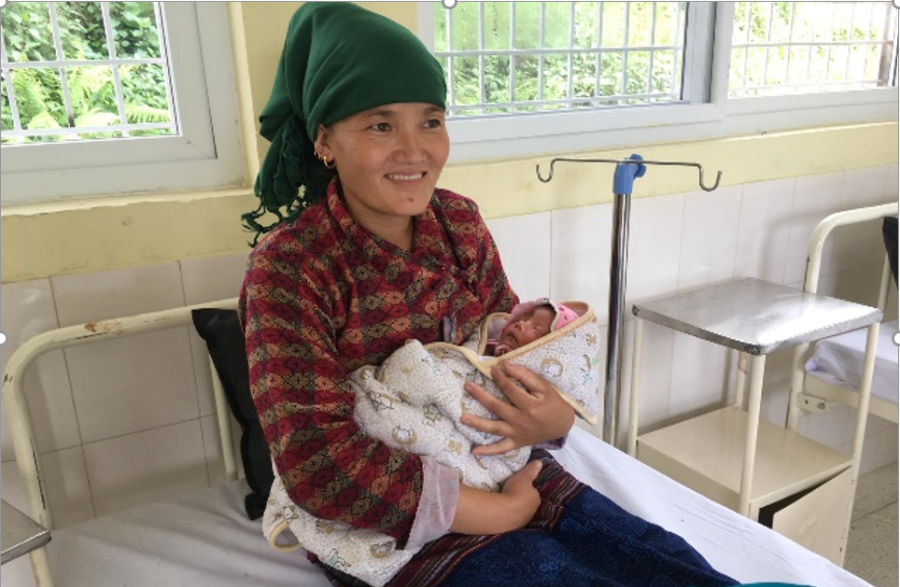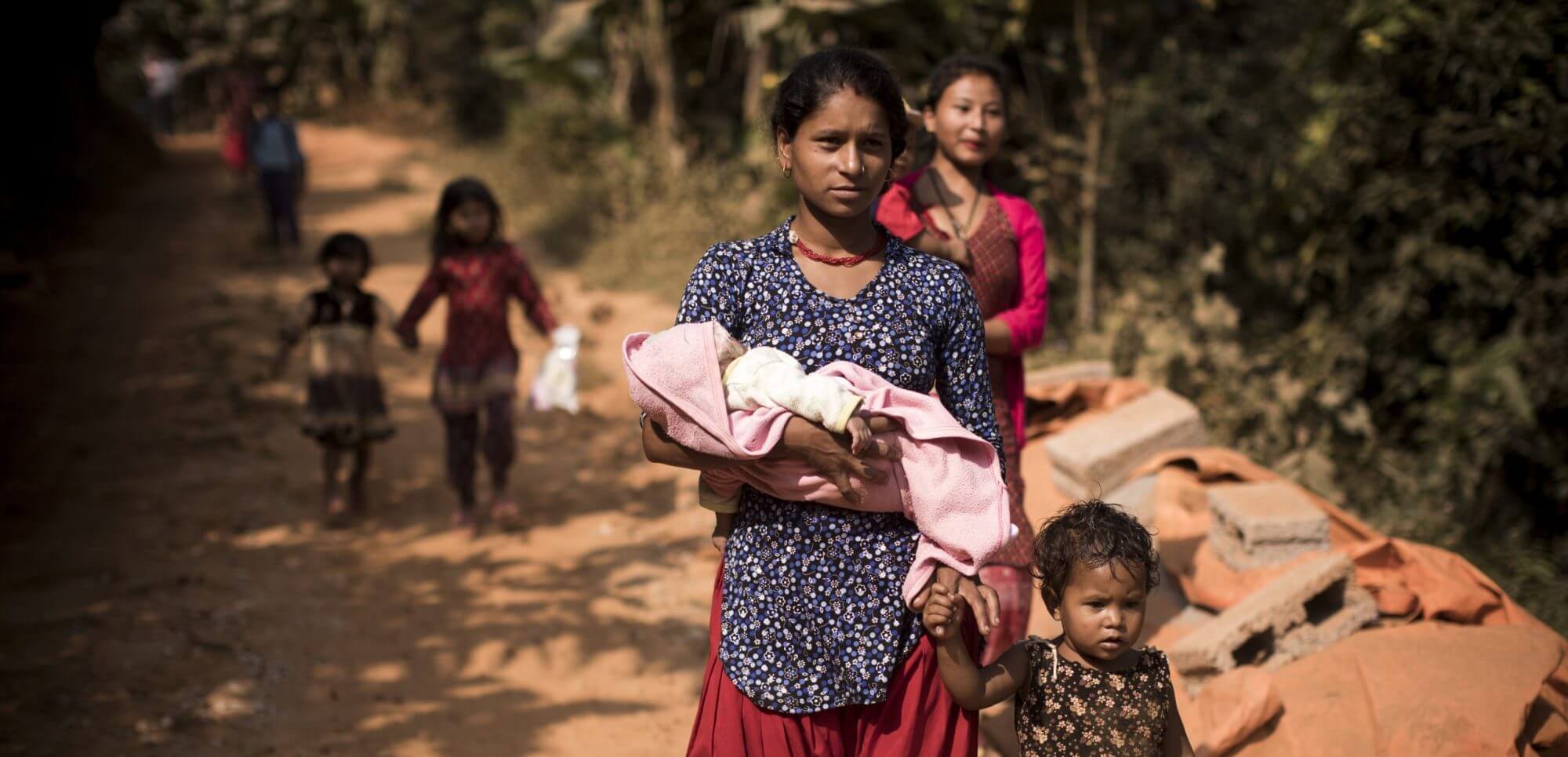“I was unaware of the risks of delivering a baby at home during my first pregnancy. I decided to visit the community birthing center for my second delivery and was very happy with the care I received there. The staff at the birthing center treated me very well, which helped erase my pain during delivery.” These are the words of Karuna, a Ghumthang local, who gave birth to her second child at a local birthing center constructed with the support from CARE Nepal.

The situation, however, was not always this simple. Ghumthang is one of the remote communities in Barhabise Municipality in Sindhupalchowk District that has a high population of marginalized groups. The nearest Health Center is 22 km from the community. Traveling such a distance in this hilly terrain to access prenatal, birthing and postnatal care was impractical and impossible for many women resulting in more than 80% delivering their infants at home.
Lack of a birthing center or any health facility in close proximity also meant that many women in Ghumthang struggled to safely deliver their babies and have access to other maternal health services. While distance was one major factor, poverty and social norms also played a role in women choosing to deliver their babies at home. Women sought services at the health center only when complications arose during childbirth, which led to increased risk of maternal and infant mortality in the community.
CARE Nepal, in dialogue with local women, community leaders, and government, agreed it was critical to construct and supply a birthing center in Ghumthang. However, even with a well-equipped birthing center with trained staff, the project found that most of the locals were still hesitant to utilize the services due to entrenched social practices.
To tackle this, CARE Nepal engaged with these rural communities to transform social norms and health seeking practices through proven social behavior change approaches—actively collaborating with mothers’ groups, female community health volunteers, schools, and local radio stations.
The community members are now happy to have an accessible maternal health service for women here and have expressed that they will continue prioritizing maternal health.
With activities focused in equality between men and women and access to health services including reproductive health in its project areas, CARE Nepal has successfully reached 898 women and girls ensuring access to essential maternal health services. This has successfully contributed towards decline in maternal and infant mortality. Likewise, CARE Nepal's continued advocacy for accelerated learning programs has kept 2,455 vulnerable adolescent girls in school.

